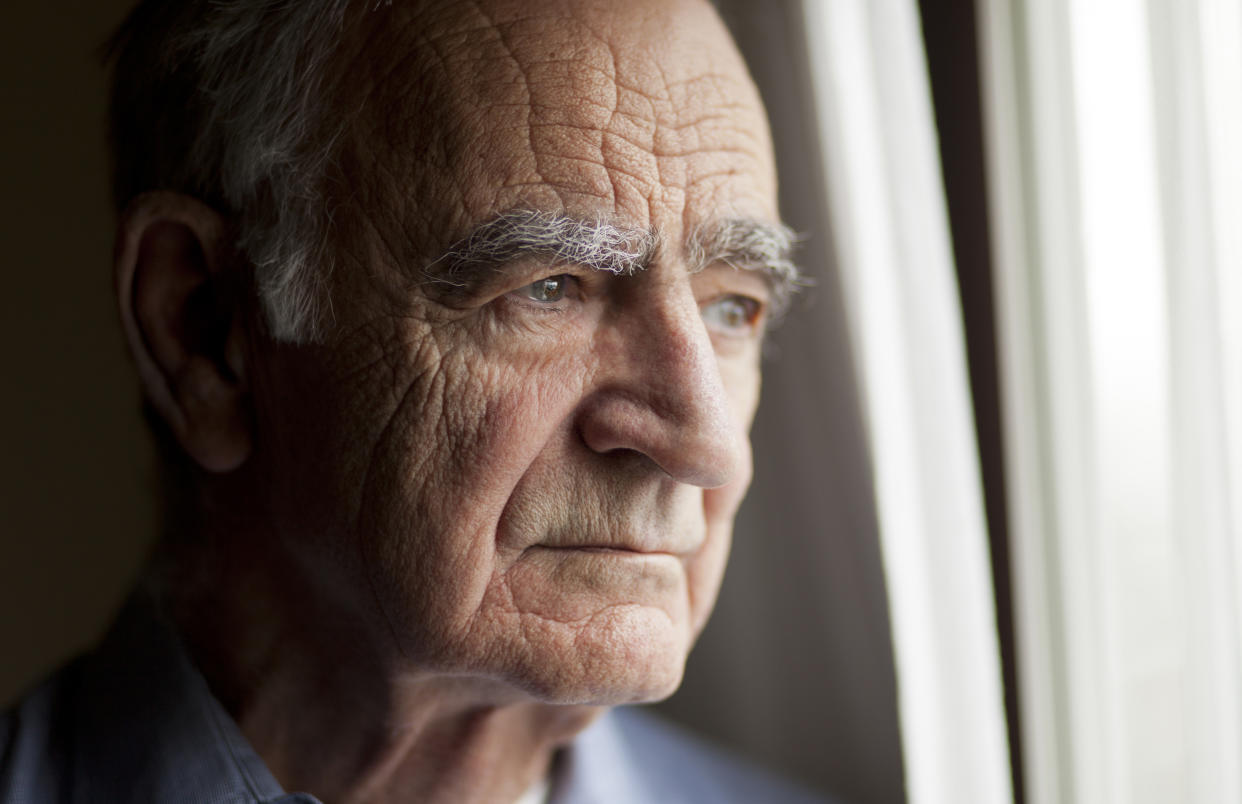‘Stiff upper lip’ mentality may drive loneliness in elderly men

The “stiff upper lip” mentality may be driving loneliness in elderly men, an expert has warned.
Over nine million people in the UK, more than the population of London, are “always or often” lonely, according to the Campaign to End Loneliness.
Old people are among the worst affected, with half a million going up to six days a week without speaking to anyone.
Statistics suggest loneliness affects women more than men. This may be misleading, however, with some arguing men are “more reluctant to report undesirable feelings”.
READ MORE: How to spot someone is lonely and what to do to help
While staying calm in the face of adversity was once admirable, maintaining a stiff upper lip may leave lonely pensioners suffering in silence.
“Older men would not see opening up as a desirable trait,” Dr Earim Chaudry, medical director of Manual, told Yahoo UK.
“Men from a young age get fed a narrative to behave in a certain way; displaying emotional vulnerability is negative and not considered manly. They’re told to man up and stay strong.
“We all know a ‘grumpy old man’ whereas it’s ‘sweet old ladies’. Men are pigeonholed to not need or want social contact.”
READ MORE: Millions of older people face Christmas Day alone
As old age often brings bereavement, many face losing both a loved one and their social circle.
“Men are more involved with work traditionally and females have taken up the mantle of looking after the home,” Dr Chaudry said.
“Men tend to shy away from organising things. They don’t tend to be the makers of the food at the party, so they feel less able to take on that role.
“When bereaved, they lack the skills and connections to cope by themselves.”
How to help combat loneliness in elderly men
While it may go against how they were raised, sufferers must first admit they are struggling.
“Men need to open up and accept their loneliness is an issue,” Dr Chaudry said.
“Talk to a GP, call NHS 111 or the Samaritans. With their help, try and find the root cause and work on practical interventions.”
Dr Chaudry also recommends taking up sociable hobbies. While these can be expensive, free activities are available at local libraries, like chess clubs or book groups.
If you suspect someone is struggling, let them know these sort of activities are going on.
Day-to-day, even small acts of kindness can make a big difference to some who feels isolated.
READ MORE: How to combat male loneliness
“Neighbours can observe if someone is by themselves,” Dr Chaudry said. “Just wave, pop in for a tea and gradually build up a neighbourhood.”
When talking to an elderly person, the NHS recommends pausing between sentences and questions to allow them time to digest the information.
It may also be important to speak slowly and clearly if they have hearing problems.
From a practical perspective, offer to lend a hand, whether it be picking up prescriptions, changing a light bulb or giving them a lift to a doctor’s appointment, the NHS adds.
With many struggling to cook for themselves, you could also invite them over for dinner or freeze leftovers for them to reheat.
If you are feeling alone, the Samaritans are available 24/7 on 116 123.


